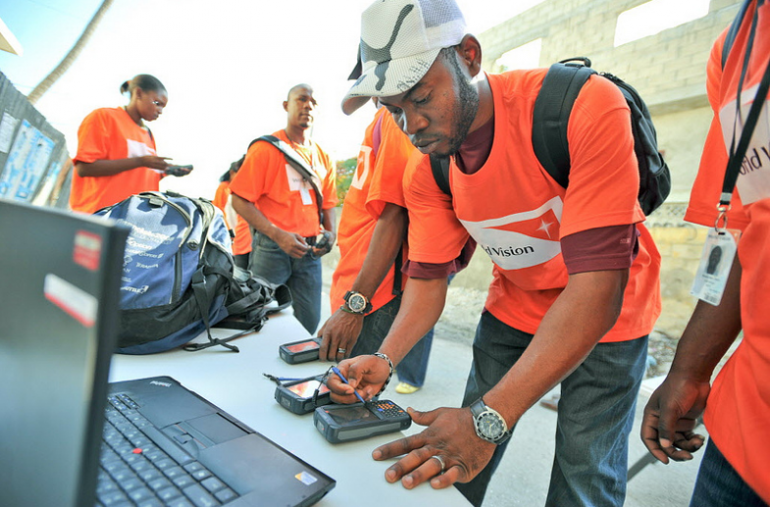A Mississauga-based company that provides mobile solutions for humanitarian aid workers received a $900,000 grant today from the Department of Foreign Affairs, Trade and Development to help deploy the technology to a growing number of aid agencies around the world.
Last Mile Mobile Solutions helps aid workers track inventory in real time, creates reports and analysis, and reduces human error in the critical “last mile,” where relief supplies reach those affected by disasters.
LMMS provides an identification card with a registered barcode and picture to each household that stores their health information, family size, and other vital information. The system has a roaming server, which means it can work with or without Internet service, an important feature for tools being used in disaster zones where mobile infrastructure may be compromised.
The technology has been used in 16 countries to date, including the Haiti earthquake disaster response in 2010. The grant from DFATD will help scale LMMS and allow it to be deployed by a growing number of aid agencies around the world, including Oxfam, Second Harvest Asia, the Norwegian Refugee Council, Save the Children (Niger) and Medair.

“We are pleased to support innovations such as LMMS that make humanitarian aid more accountable to both recipients and donors,” said Christian Paradis, the Minister of International Development, in a press release. “LMMS’s reporting capabilities will help agencies present a much clearer picture of their results. This is another way in which we continue to fulfill our international development transparency and accountability commitments.”
LMMS, which was “made by humanitarian geeks for humanitarian geeks,” registers and tracks aid recipients, calculates rations and supplies, and generates detailed electronic reports at the distribution site. As a result, aid workers can verify the identity or recipients and distribute resources in one quarter of the time.


